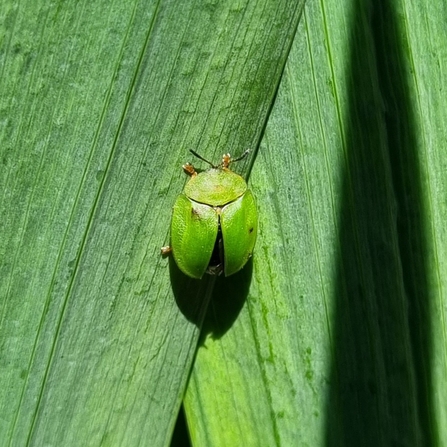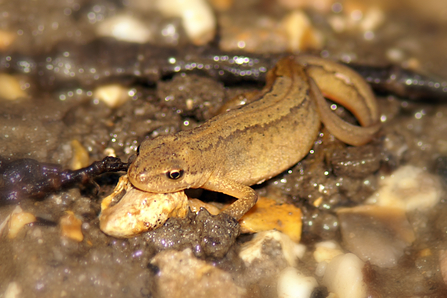Volunteers for the North Manchester Nature Network found a brand new species of beetle for North Manchester – the green tortoise beetle (Cassida viridis). The project is being run by the My Wild City team.
Records suggest that this is the first time this insect has been recorded in North Manchester. It also demonstrates the positive effects of habitat creation in urban parks.
The beetle was found on the floating islands in Boggart Hole Clough alongside one of its favourite plant species – water mint. Volunteers found the beetle during a wildlife walk and uploaded it to the iNaturalist app for identification.


